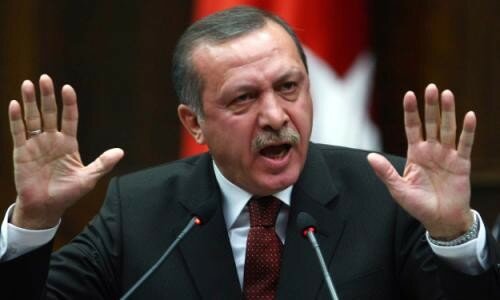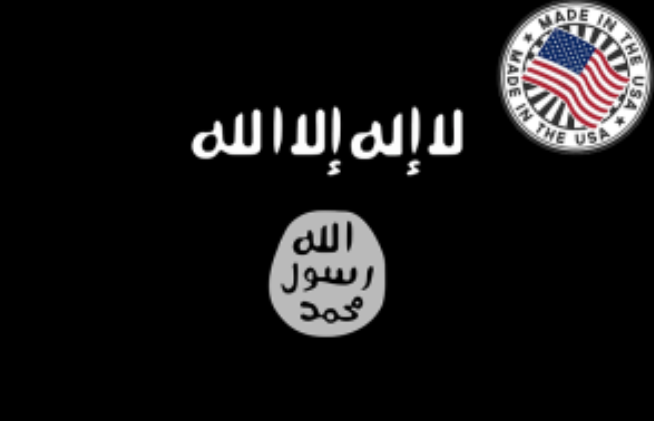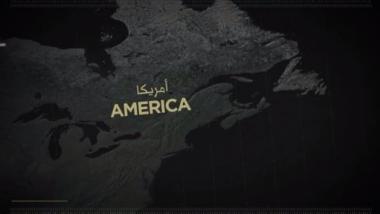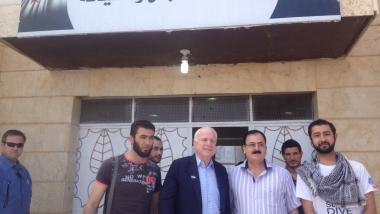Turkey Paves Way for Another Cuban Crisis
| Pyotr ISKENDEROV | 28.11.2015 | 00:00 |
 |
Turkey has downed a Russian SU-24 Fencer bomber which posed no threat to its security. This act of provocation against Russia is unprecedented in the modern history. It greatly exacerbates the global situation. It also proves the existence of a very dangerous geopolitical trend directly related to the countries of Central and Eastern Europe, which have already become NATO or EU members, or cherish the dream of joining these organizations (often at any price).
Some contemporary state leaders are ready to push the humanity to the threshold of new world war to ensure their own political survival or achieve purely personal goals.
«I understand each country has its own regional interests, and we have always respected that. But we shall never tolerate crimes like today's one», the President Vladimir Putin said meeting King of Jordan Abdullah II.
It very well defines the «red line» to be kept in mind by responsible politicians and statesmen, especially those who formally represent their countries at G20 and host the organization’s summits.
What made Turkish President Recep Tayyip Erdogan do such a thing risking disastrous consequences for his country, including negative social-economic effects? He knows that he enjoys full supported of NATO, especially the United States. That is the main explanation. The desire to exploit the contradictions between great powers has always been an instrument of the (Neo)Ottoman Empire’s policy. President Erdogan has simply raised the stakes too high. Ankara has direct interest in the Syria’s conflict, including oil transactions and the attempts to make the terrorists of the Islamic State clash with the Kurds. The military defeat of the Islamic State does not meet the Turkey’s interests in any way. It also does not serve the interests of the United States implementing its strategy of controlled chaos and geopolitical isolation of Russia.
These are the goals of Turkey’s policy. The steps undertaken by Turkish government inevitably make European countries share the responsibility and reap the results of such policy. It is noteworthy that Turkey appeals to NATO each time the situation at the Syrian border exacerbates. The NATO sessions end up condemning Russia to encourage Ankara to continue its present course.
According to the Steven A. Cook’s article titled Is Turkey Really at the Table? published by Politico Magazine, «…as Turkey and Russia dispute the incident, it is casting a spotlight on one of the most troubling developments in the evolving struggle in the Middle East: When it comes to fighting the Islamic State and extremism more generally, Turkey – and President Recep Tayyip Erdogan – has become a significant part of the problem, rather than part of the solution».
«The existence of Incirlik – along with the fact that Turkey shares a 500-mile border with Syria, and is the NATO outpost closest to the conflict in Syria – is Erdogan’s get-out-of-jail card», the article reads.
The «get-out-of-jail» strategy of the United States and NATO (with Europeans silent and humble even after the Paris attacks) constitutes the biggest threat today. Nobody knows how far regional leaders would go (not Turkish President only, but many others) to bring the stand-off between Russia and the West to the boiling point. Inevitable, the NATO’s internal hierarchy will demand that the Czech Republic, Slovakia, Hungary and other nations of Central Europe side with the perpetrators of such provocations.
For Serbia, Montenegro and other Balkan states trying to be the West’s frontline the situation is hardly any better.
One can only surmise what military and political consequences Turkey will face after the incident. Financial losses are already being assessed. According to some calculations, Turkey will suffer the loss of $44 billion, including the bilateral trade turnover equal to $33 billion and over $2 billion of accumulated investments into each other’s economies.
Erdogan has states his intent to increase the bilateral trade turnover up to $100 billion by 2023. It’ clear, Turkey will face financial losses. The main thing is to prevent the Turkish President, who has gone too far playing his game, from getting his long-suffering people and the entire Europe dragged into a new Cuban crisis.
It should be noted that in the heat of tensions as the crisis of 1962 unfolded the opposing sides did not bring down each other’s aircraft. These days, Turkey has «outperformed» even the United States of the Cold War era. |
| Tags: Middle East Russia Turkey US Erdogan http://www.strategic-culture.org/news/2015/11/28/turkey-paves-way-for-another-cuban-crisis.html |


